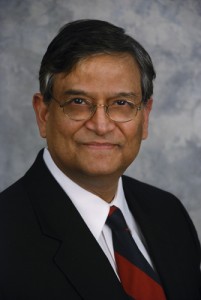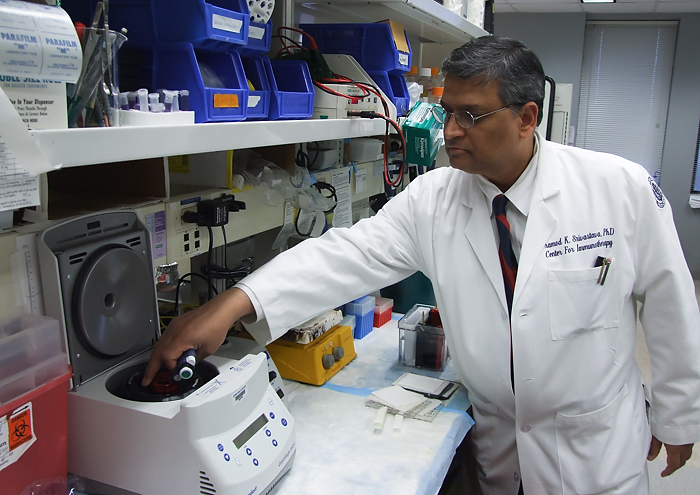
A therapeutic vaccine for the treatment of genital herpes has shown positive results in studies in a number of animal models and in a small randomized clinical study. The results are published in two back-to-back articles in the current issue of the peer-reviewed journal Vaccine.
Dr. Pramod Srivastava, director of the Carole and Ray Neag Comprehensive Cancer Center at the UConn Health Center and a senior author of the articles, says “This is the most promising of all immunological approaches that have been attempted thus far for therapy of genital herpes.”
The HerpV vaccine is based on heat shock protein (HSP) platform technology. Heat shock proteins are cell components present in all living organisms. Extensive scientific and clinical research has demonstrated that HSPs play an essential role in helping the immune system recognize and destroy diseased cells. Oncophage, the first cancer vaccine to be approved for clinical use anywhere in the world, is based on the HSP technology, pioneered by Srivastava.
Srivastava says the HSP technology can be used for immunization against, and treatment of, a wide array of diseases: “This work has been pursued thus far mostly in cancers. The work published in Vaccine provides the first solid demonstration of the application of the HSP platform for treatment of viral infections in humans.”
Genital herpes is a physically painful and emotionally debilitating disease that affects one in six Americans. Current therapies involve taking a daily medication that only partly suppresses the virus.
According to Agenus, the company that developed HerpV, the vaccine is the most advanced HSV-2 (herpes simplex virus type 2) vaccine program in clinical development for the treatment of genital herpes.
The study abstract for the study in animals is available at http://www.sciencedirect.com/science/article/pii/S0264410X11010322.
The study abstract for the clinical study is available at http://www.sciencedirect.com/science/article/pii/S0264410X11014526.
For more UConn Health Center news and information, follow us on Facebook, Twitter and YouTube.



